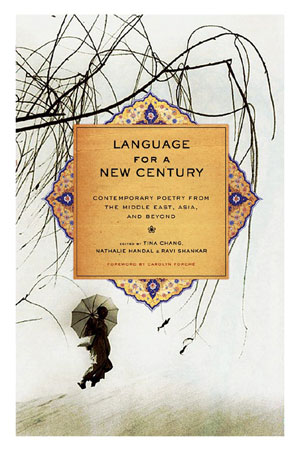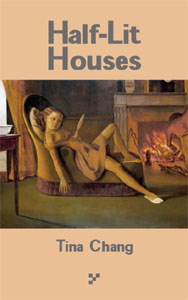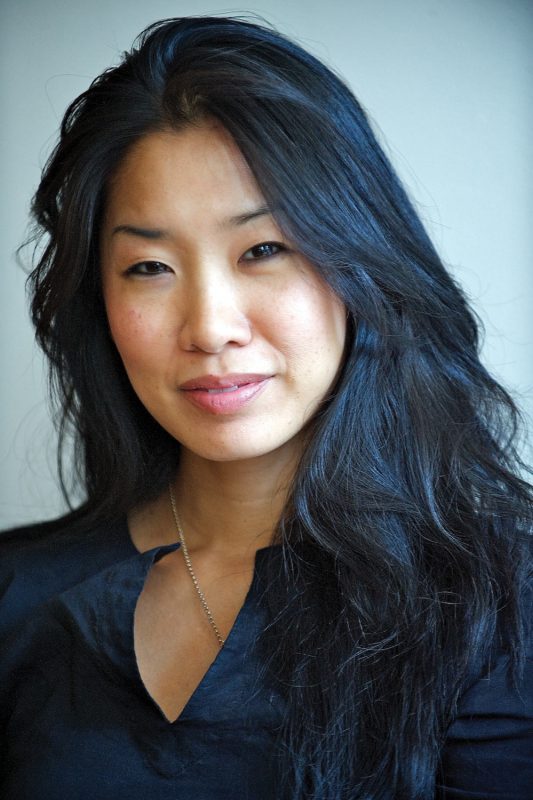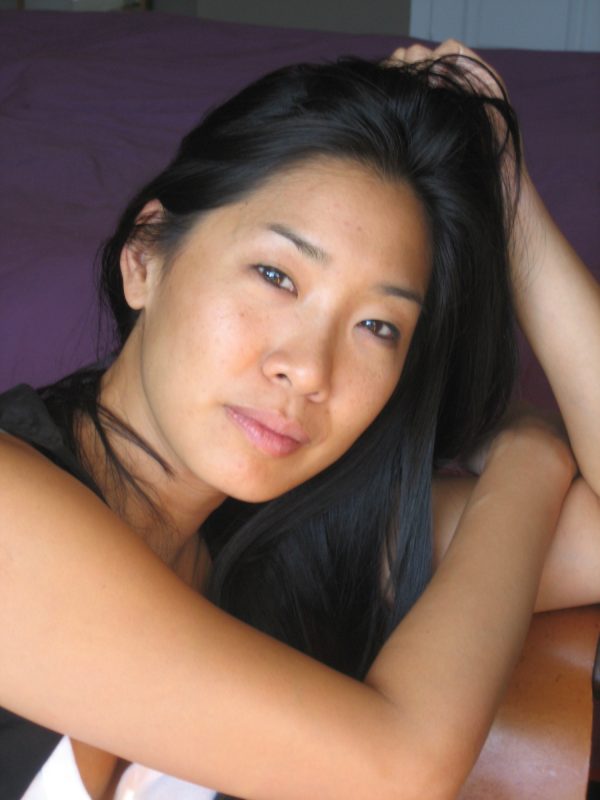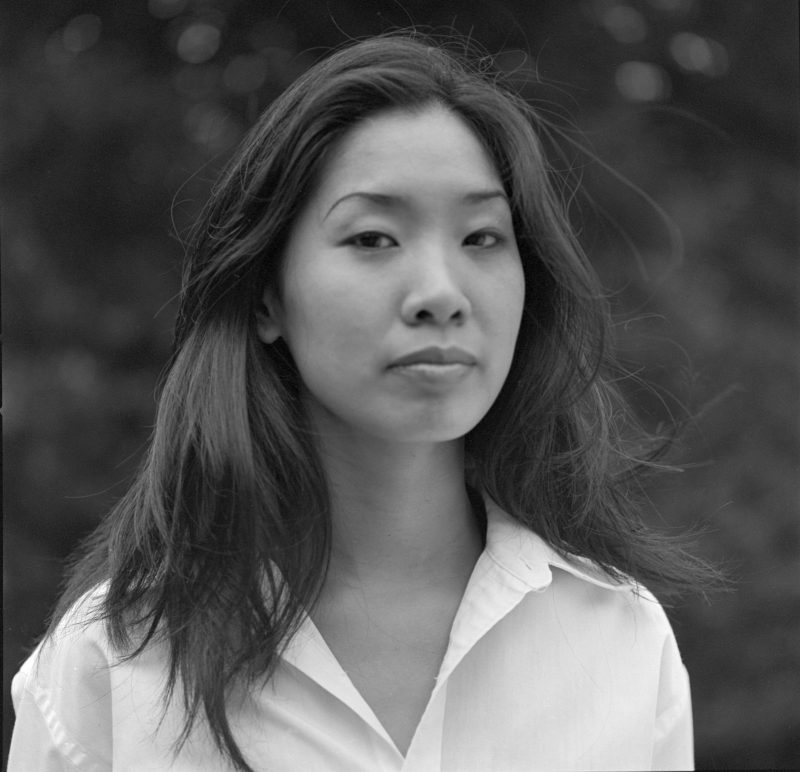
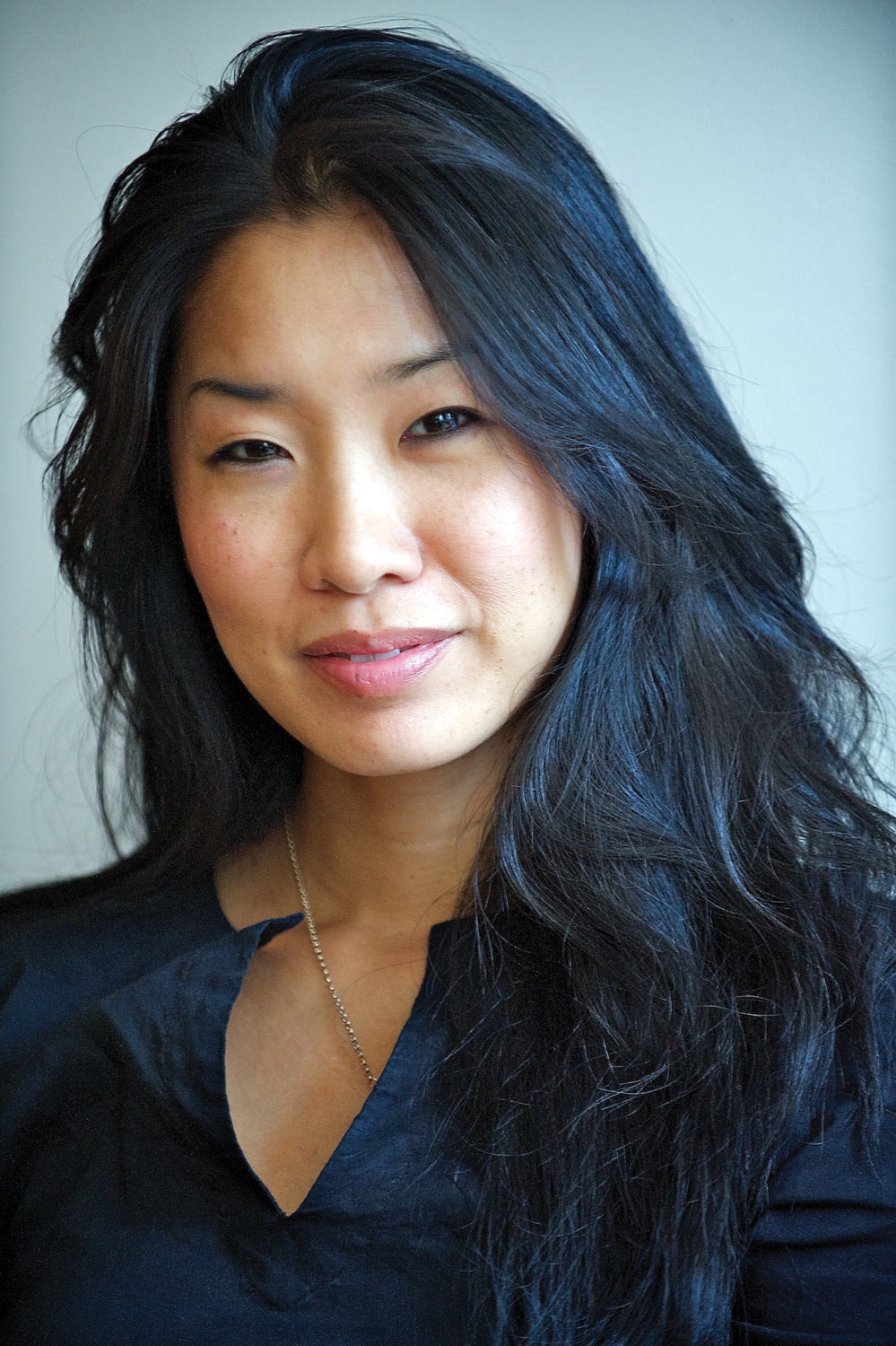
Tina Chang
Acclaimed American Poet
Brooklyn Poet Laureate (2010-2021)
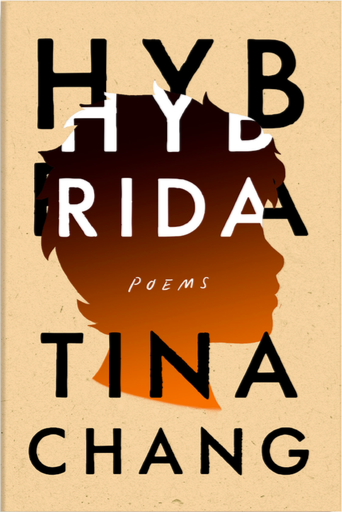
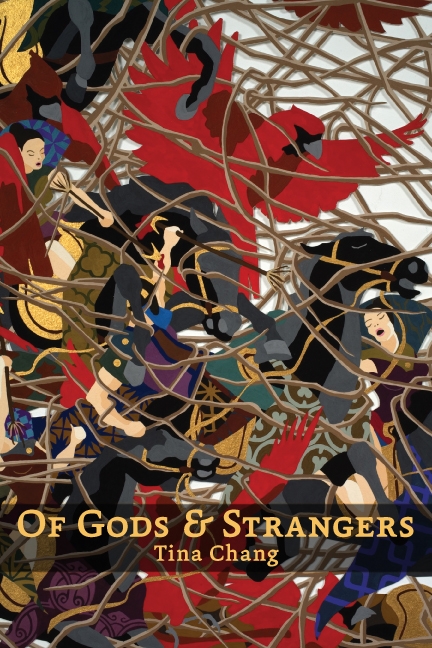
Readings &
Lecture Topics
- A Journey of Process: Stages of Poetic Life
- International Poets & History
- Time & Geography in Poetry
- Building Community Through Poetry
- Imaginary Poets: Persona and Identity
- Lyric Hybrid: Poems for a New Generation
- Sustaining a Creative Life
- The Sensual Form: Poetry Workshop
- Rebels, Sirens, Outlaws: Poetry Workshop
Biography
“Tina Chang’s poems perform the ancient tasks of remembrance, recovery, and praise. This work seeks to account for a life in the context of the myths, cultural and familial, that both nurture and threaten that very life and the voice that might sing it into legend. This is a poetry of amazing lushness, melancholy and affirmation.” — Li-Young Lee
“With keen resolve, abiding trepidation, and powerful empathy, Tina
Chang explores what it takes to survive in these times.” – Kimiko Hahn
“Tina Chang is writing to the future, from the past towards the present, and all the way back again.” —Marie Howe
She is the author of four poetry collections: Lion (Norton, September 2026); Hybrida (Norton, 2019), which NPR notes as: “one of the most important books of poetry to come along in years”; Of Gods & Strangers (Four Way Books, 2011), and Half-Lit Houses (Four Way Books, 2004), which was a finalist for the 2005 Asian American Literary Award. In a review of Half-Lit Houses, Rain Taxi wrote: “Chang’s poems rescue the inexpressible, preserve vibrant domestic histories, articulate the very slowness of loss, and answer the chilling aftermath of grief with forms of bliss.”
LitHub writes about the poems in Hybrida, “Tina Chang’s third collection moves like a tour-de-force of fury and love. Further proof that poetry’s power to negotiate polarized space explains why it’s so potent now. At the hub of Chang’s project lies a robust reclamation of motherhood as a hybrid form. To do this she deploys multiple poetic modes, from the zuhitsu to ghazals, which spoke outward from the book’s centerpiece, wherein she writes: ‘Vocabulary is the future we’ve all been waiting for.’ Around the collection’s ancient title word Chang fashions a new definition: one that puts hybridity at the heart of American existence. She sings lyrics to her young children, as if giving them permission to be more than their pasts — while warning them not to forget where they come from. “Revolutionary Kiss” traces the threads of history which led to the improbable miracle of her boy, born of Haitian and Taiwanese upheavals into Brooklyn today. In some poems, Chang wends compassionately around the figures of Michael Brown and Noemi Álvarez Quillay, showing how her own concerns—for safety, against racial bias in schools—are questions of life and death for so many mothers. In other poems, like “Portraits,” she gazes into art works—such as Kara Walker’s “Woman Beneath a Woman”—and shifts sideways into abstract space. For all the intimacy of Chang’s lyrics, a number of which ought to be anthologized into the next century, it’s in these poems where she forges some of her finest lines, such as: ‘If I could walk out from under this thunder/there would be such air.’ Who hasn’t made a tent of care above a child’s head in stormy times and felt the same?” United States Poet Laureate Tracy K Smith praises Chang and this collection by saying, “I have loved Tina Chang, and her work, since long before either of us were published poets. In Hybrida’s poems of deep conscience and urgent compassion, I recognize her fearless imagination and searching intelligence. I also find a new sense of need. These poems are clear-eyed and unblinking—written to save lives.”
She is the co-editor of the seminal anthology Language for a New Century: Contemporary Poetry from the Middle East, Asia, and Beyond (W.W. Norton, 2008), which was hailed as, “One of the 10 greatest international anthologies, a timeless resource” by the Academy of American Poets, and was praised by the Financial Times, San Francisco Chronicle, Washington Post, Poets & Writers and many other periodicals. Of the anthology, poet Carolyn Forché said, “Read Language for a New Century as you would a field guide to the human condition in our time, a poetic survival manual.” Chang’s own work has been published in The New York Times and Ploughshares among others, and has been featured in the anthologies Asian American Poetry: The Next Generation and Identity Lessons: Contemporary Writing About Learning to Be American (Penguin Books).
Chang is the recipient of awards from the New York Foundation for the Arts, Academy of American Poets, Poets & Writers, the Ludwig Vogelstein Foundation, and the Van Lier Foundation among others. In 2011, she was awarded The Women of Excellence Award for her outreach and literary impact on the Brooklyn community. In 2014, Brooklyn Magazine named Chang one of the 100 Most Influential People in Brooklyn Culture. Her work often brings her to international audiences in China, Singapore, Hong Kong, among many other parts of the world. She has read for ambassadors, mayors, international politicians, and has traveled on behalf of the US Embassy for public diplomacy speaking engagements under the auspices of the US Department of State to illuminate her poetic process and to share her work.
In her role as Brooklyn Poet Laureate, Chang’s mission has been to create larger audiences for poetry through youth education and literary programming. Her poet laureate initiatives involve nurturing underserved areas of Brooklyn and improving literacy while bridging dialogue between those of different cultures. Her public outreach includes works with public and private schools, non-profit organizations, and philanthropic initiatives; her students have ranged from pre-school age through post-graduate and beyond. She has helped to train and nurture college-age students through collaboration with the Community-Word Project, a New York City based arts-in-education organization that inspires children in underserved communities to read, interpret, and respond to their world, and to become active citizens through collaborative arts residencies and teacher training programs.
A passionate teacher, she’s created many opportunities to bridge the distance between her students and the public. She spearheaded the first Race & Poetry Symposium at Sarah Lawrence College, which brought together writers of Iranian, Indian, Korean, and African descent to discuss issues of race, culture, and identity in poetry. Along with Tracy K. Smith, Chang also co-founded an annual collaborative reading series between the Asian American Writers’ Workshop and Cave Canem, which showcased both established and emerging Asian American and African American writers. Most recently, Chang co-organized along with NY State Poet Laureate Marie Howe The New York City Poetry Rally in response to racial injustice where poets publicly shared poems, which spoke to oppression and brutality as much as they did to unity and compassion. These events have all been the first of their kind, born from the desire to listen actively to the community’s needs, finding venues for open conversation, where poetry can find voice and where vision grows.
Born in Oklahoma to Chinese immigrants, Chang was a year old when the family moved to New York City; not long after she and her brother were sent to live in Taiwan with relatives for two years. “I started questioning even at a very young age, well, what is language?” she said. “What is the role of words?” In an interview given after 9-11, Chang said, “When pondering my identity as an American poet, it is more difficult than ever to place geographic restrictions on my influences and aesthetics…. Perhaps to acknowledge an American Poetry is to acknowledge the most human and fragile self living in and among a global community. The idea of the porous nature of boundaries (geographic, cultural, metaphoric) evades and invades my imagination. In short, I am not alone in the word.”
Tina Chang received her MFA in poetry from Columbia University. She is the Director of Creative Writing at her alma mater, Binghamton University. She lives in Ithaca, NY with her family.
Short Bio
Tina Chang is the author of Half-Lit Houses (2004), Of Gods & Strangers (2011), Hybrida (2019) which was named A Most Anticipated Book of 2019 by NPR, Lit Hub, The Millions, Oprah magazine, Publisher’s Weekly and was named a New York Times Book Review New & Noteworthy collection, and Lion (2026). She is also the co-editor of the W.W. Norton anthology Language for a New Century: Contemporary Poetry from the Middle East, Asia, and Beyond (2008). Chang is the director of Creative Writing at Binghamton University.
Visit Author WebsiteVideos
Publications
Lion
Poetry, 2026
Lion explores Asian American identity, including visibility and invisibility in public and private realms. The written text mines personal memory in association with elements of safety and danger as an Asian American woman comes of age in the United States. Violence against Asian Americans during the COVID-19 pandemic is set against the inner, lyrical explorations of a self that pushes the boundaries of language and form in search of an identity that resists categorization.
The title of the poetry collection, Lion, focuses its attention on the cultural history, etymology, and folklore of the word. In Chinese culture the image of the lion is a composite of five animals: the horn is from the phoenix, the ears and tail are from the unicorn, the spine is from the snake, the back of the head is from a tortoise and the beard is from the dragon. A large, carnivorous feline, the lion is traditionally male. The word and its narrative traditions and usage are explored throughout the collection, examining ideals of strength, courage, and mastery.
Many of the poems are written in response to multi- hyphenate artists (those who operate in more than one medium: text, video, illustration, collage, painting, light, sculpture) such as Christina Yuna Lee, Astria Suparak, Hồng-Ân Trương, Haena Yoo and others who participated in the group exhibition, With her Voice, Penetrates Earth’s Floor, in memory of Christina Yuna Lee, after her death. What preceded the inclusion of each artist’s work was discussion and reflective exchange about the COVID-19 era, its impact, and safety for Asian American women in environments of surveillance and violence; the nature of fear, and the grief that remains.
Hybrida
Poetry, 2019
“With inexhaustible technical and emotional dexterity, Chang mixes and remixes social and familial resonances; reconfigures forms, myths, and prophecies; and records the hybrid sounds of love. Hybrida is a mature, masterful collection by a poet who never fails to astonish.” – Terrance Hayes
The word hybrid translates from the latin word hybrida, a variant of mongrel or a creature of mixed breed. The poems in this collection are an examination of mixed race through the lens of motherhood as well as an open interpretation of violence, collision of selves, and histories. Through the hybrid forms of zuihitsu, ghazal, prose poems, ekphrastic poems, mosaic poems, lists, and lyric essays, the collection envisions a childhood of mixed race as one that is complex, emotionally wrought, and often dangerous in a post-Trayvon Martin era. Hybrida also meditates on the lives of Michael Brown, Leiby Kletzky, Noemi Álvarez Quillay, young lives lost at the hands of individuals entrusted to protect them. Underlying themes of race, are aspects of fairy tale. The vulnerable figures of young boys and girls are set against reoccurring characters of the witch and the hunter, further commenting on the sinister nature of predators as protectors. All the while, Chang ruminates on a son’s blackness in relationship to safety and asks, “How do I speak of his identity without appropriating his identity? I return to the language of mothers.”
Of Gods & Strangers
Poetry, 2011
“Chang’s high-intensity second collection tracks her needs, desires, and disappointments and her quest to fit them into a trans-Pacific history.”—Publishers Weekly
A meditation on history and the imagination that bears witness to acts of genocide and to natural disasters in Ethiopia, Haiti, and Sri Lanka, Of Gods & Strangers interweaves lyrical, arresting accounts of our contemporary world with stories of “Empress Dowager” Tzu Hsi, last empress of China (1861-1908). An urgent reminder that poetry can offer us a social consciousness, Of God & Strangers deftly traces the human dimensions of the “great modern machine,” looking to recover “a future shining from the void.” Poet Marie Howe says, “Of God & Strangers is haunted, intoxicating, and revelatory—the voice, ‘neither evil nor kind’ is ferociously alive.”
Language for a New Century: Contemporary Poetry from the Middle East, Asia & Beyond
Poetry Anthology, 2008
LANGUAGE FOR A NEW CENTURY: CONTEMPORARY POETRY FROM THE MIDDLE EAST, ASIA, & BEYOND
A landmark anthology, providing the most ambitious, far-reaching collection of contemporary Asian and Middle Eastern poetry available. Language for a New Century celebrates the artistic and cultural forces flourishing today in the East, bringing together an unprecedented selection of works by South Asian, East Asian, Middle Eastern, and Central Asian poets as well as poets living in the Diaspora. Some poets, such as Mahmoud Darwish and Bei Dao, are acclaimed worldwide, but many more will be new to the reader. The collection includes 400 unique voices from 55 countries writing in 40 different languages—political and apolitical, monastic and erotic—that represent a wider artistic movement that challenges thousand-year-old traditions, broadening our notion of contemporary literature. Each section of the anthology–organized by theme rather than national affiliation–is preceded by a personal essay from the editors that introduces the poetry and invokes the readers to examine their own identities in light of these powerful poems. In an age of violence and terrorism–often predicated by cultural ignorance–this anthology is a bold declaration of shared humanness and devotion to the transformative power of art.
Half-Lit Houses
Poetry, 2004
“Physical, emotional, and spiritual hunger fuel the core of Tina Chang’s first collection of poems, Half-Lit Houses—hunger for memory; hunger for ancestry; hunger for definition (both self and song); hunger for a living/breathing father; hunger for God or “anyone who will listen;” and, of course, hunger for food…. Chang reconstructs history and moment in a lyrical yet declarative poetry that leaves the reader feeling haunted, transformed, satisfied.” —Pleiades Literary Journal
Chang’s poems address the problems of family and heritage. This collection of poetry documents a young girl’s very beginnings, the loss of her father, the father’s presence as a mythical figure in the speaker’s life. The collection is also punctuated by a movement backward in history, specifically to Hunan, China in the late 1930’s and early 1940’s. By moving backward, the speaker begins to imagine her life as a continuance of a long ancestry of loss and acceptance. These are passionate and accessible poems, simple in diction and declaration, elegant in image and syntax.
Articles & Audio
Read What’s In Print
• Tina Chang Discusses Race, Motherhood, and Poetry – Washington Square News
• Mother Language: A Q&A with Tina Chang
• “How Can Anything Feel Unified?”: On Tina Chang’s Hybrida – LA Review of Books
• Interview with Ilya Kaminsky on Hybrida – Poetry International
• Interview with Lumina Journal: Race, Hybridity & Mythology – Lumina Journal
• The PEN Ten Interview with Tina Chang – PEN
• 17 of the Best Poetry Books, Recommended by Acclaimed Writers for NPM – O Mag
• “I Reject Walls”: A 2019 Poetry Preview – NPR
• A Poet Who Doesn’t Do Lofty, Profile of Tina Chang — The New York Times
• Interview with Tina Chang — BOMB Magazine
• Why I Write Essay by Tina Chang — Publishers Weekly
• A Conversation with Tina Chang — Lantern Review Blog
• Tina Chang and Li-Young Lee in Conversation — The Academy of American Poets
Listen to Audio
• “Astroturf” by Tina Chang – Poets.org
• Tina Chang reads 6 Poems — Fishouse
• The Process of Writing a Poem with Slide Show — New York Times
Selected Writings
• Read the poem “Fury” — Academy of American Poets
• Read the essay “With the Birth of My Son, I Stopped Hiding” – NYT Modern Love
So Much Light We Could See to the Other Side
All fuel and fire, spine left like a bent arrow, dark matter,
the teeth as relic, all of our words bitter fruit. Who could
have believed we were made like this. The cosmonaut,
the soothsayer, and the blind archeologist knew merely
by feeling with the ends of their fingers which reached out
to nothing. We were a warring lot, hammered by days,
and greedy too. Our plates were dented with heavy spoons,
words spoken in secret in front of a fire, documents burned
before anything of substance was revealed. We made that fire,
fed the flames with newspapers, kings, martyrs, and love.
We were wanton, selfish, predisposed to constant dreaming.
We fed, fought and then fought some more until night arrived
with its hellish glow. All around us, mothers taught their children
words for the first time. They fashioned the universe into something
knowable, sayable. Say this, said the mother and the infant repeated
the words, clumsily, devoted. The child’s devotion was the world
fabricating a truth. Repairs on the other side of the hemisphere.
The archeologist found our bones and said we were a strong
and healthy race, grew more ingenious than any generation before us,
before we fell away from wit, invention, our own empty embrace.
We ran to our end like leaping into a volcano. Unstoppable fury.
We should have disappeared entirely after the bomb, the floods,
our own desertion. Someone’s mouth blows dust off the bones.
The soothsayer predicts that we will come back, the cosmonaut
is willing to bet when the world ended there were more
stars filling the sky than ever before. There once was shadow,
before a last light came, not to darken the plain but to define it.
—from Of Gods & Strangers
Invention
On an island, an open road
where an animal has been crushed
by something larger than itself.
It is mangled by four o’clock light, soul
sour-sweet, intestines flattened and raked
by the sun, eyes still watchful, savage.
This landscape of Taiwan looks like a body
black and blue. On its coastline mussels have cracked
their faces on rocks, clouds are collapsing
onto tiny houses. And just now a monsoon has begun.
It reminds me of a story my father told me:
He once made the earth not in seven days
but in one. His steely joints wielded lava and water
and mercy in great ionic perfection.
He began the world, hammering the length
of trees, trees like a war of families,
trees which fumbled for grand gesture.
The world began in an explosion of fever and rain.
He said, Tina, your body came out floating.
I was born in the middle of monsoon season,
palm trees tearing the tin roofs.
Now as I wander to the center of the island
no one will speak to me. My dialect left somewhere
in his pocket, in a nursery book,
a language of childsplay. Everything unfurls
in pictures: soil is washed from the soles of feet, a woman
runs toward her weeping son, chicken bones float
in a pot full of dirty water.
I return to the animal on the road.
When I stoop to look at it
it smells of trash, rotting vegetation,
the pitiful tongue. Its claws are curled tight
to its heart; eyes open eyes open.
When the world began
in the small factory of my father’s imagination
he never spoke of this gnarled concoction
of bone and blood that is nothing like wonder
but just the opposite, something
simply ravaged. He too would die soon after
the making of the world. I would go on
waking, sexing, mimicking enemies.
I would go on coaxed by gravity and hard science.
— from Half-Lit Houses

